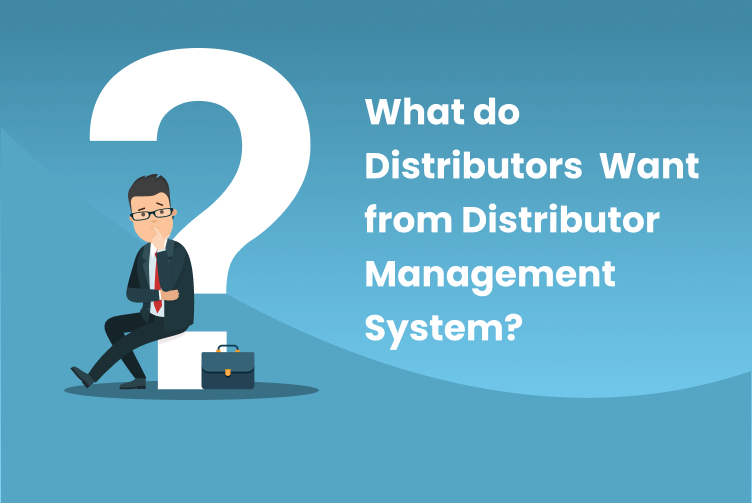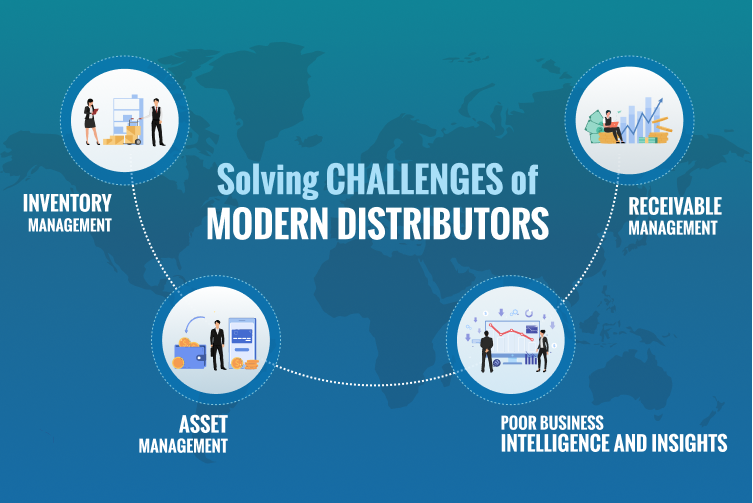How does a piece of furniture made in a factory in China make its way into the display area of a store in New York at the right time when inventory for the item is just about running out?
Irrespective of the domain, modern-day retailing tastes success based on how effectively the brands and consumer sales channels are connected and served by the distribution network. While retailers and brands rely on a gamut of analytical systems to predict demand and supply dynamics, the smooth execution of the process required to fulfil demands dynamically requires a more comprehensive management system.
Today, Distribution Management Systems, or DMS, have an estimated market size of over USD 1.7 billion globally and are rapidly growing in application. The COVID 19 pandemic was a revelation into how supply chains and distribution networks had to include the capability to quickly adapt to disruption.
Powerful DMS solutions helped brands navigate supply chain disruptions and stock supplies to meet demands most of the time. DMS does provide a major relief to brands and retailers to manage their sales pipelines, but as the popularity grows, the time has come to really ask one of the most important questions in this regard. Have you asked your distributors what they want from your Distributor Management System?
Distributors are the heart of the channel network. For long, businesses have been in a race to integrate technology that makes life easier for their customers and employees, but for ensuring sustainable growth and continued success in the digital economy, it is important to have all the stakeholders and partners taken into consideration when incorporating digital transformation. In the case of DMS, the voice of distributors must be heard before taking the dive into digitizing your network.
Let us examine the key dimensions that a DMS system must consider from the perspective of a distributor
Systems Interoperability
Distributors carry multiple products from different brands. This means they will have different systems in place that help them run their operations. Hence a DMS system should be compatible with or be customizable to align with the information exchange and data transfer policies and processes followed by different business systems that distributors use. Bi-directional supply of insights, reports, and other valuable metrics is important to help both brands and distributors take decisions on their sales and revenue strategies and customer relation management. It’s impractical to expect the distributor to use different systems for each retail brand. Brands that roll out DMS’ based on that expectation are bound to face disappointment and sup-par usage of their DM systems.
Data Acquisition and Transformation Quality
Adding an additional layer of complexity in the above scenario will be when some distributors leverage legacy systems, excel files, or manual processes to manage their data. The DMS system that a brand adapts should be able to seamlessly integrate with such methodologies and enable disruption-free data acquisition from even the most trivial of technology solutions leveraged by distributors. The data thus collected, should also be validated and vetted for quality before being ingested by the DMS for further downstream or upstream processing. In fact, if it’s possible to add on a service layer to the solution that enables constant, consistent, and correct data capture from the distributor, that is pretty valuable too.
Customization, Personalization and Localization
In several cases, distributors would have to rely on the brand’s DMS to acquire information, plan their operation schedule, manage end-customer or dealer relationships, etc. While a brand may have its own standards and strategies in dealing with customers, distributors operate at a deeper and more localized level. They may need information tailored to a particular geography in which they cater services. At the most mundane, yet profound level, an example of this is data capture and representation in the local language. Hence the DMS needs to be customizable and offer personalized or localized support for various distributor tasks. Some examples would be multi-currency support, multi-linguistic support, offering mobile apps for field service associates of distributors who can then log in activities and customer interactions that can be channelled back to the distributor or even to the brand for designing better strategic marketing and outreach programs.
Awareness and Feedback
When you decide to onboard a new business system, it is natural to arrange for training and awareness sessions for your employees to empower them to leverage the platform and make their lives easier. In the case of a DMS, the system has equal importance for your distributors too as they would be leveraging the platform daily for various needs. Hence it is important to make them aware of the benefits, use-cases, and workflows of the new system just as how you would make it known to your employees. They must believe this will help their business and not serve as a tracking and monitoring system only. Training sessions, demonstrations and continuous support streams need to be made available for distributors to equip them with the know-how on leveraging the platform at any time. Along with the training, it is also important to listen to their feedback from using the system. It will help in customizing the solution to make it more usable and efficient in the long run for all stakeholders.
To succeed in the digital economy, it is important for brands to take their distributors into confidence and empower them to contribute data and insights into the DMS which can ultimately help in improving competitiveness for all involved. Having a DMS system that can securely establish this confidence and empower sustainable growth is as important as core business systems like ERP and CRM. Get in touch with us to explore more about empowering your distribution network to deliver its finest with a state-of-the-art DMS system that offers coverage for all your distributor concerns.




